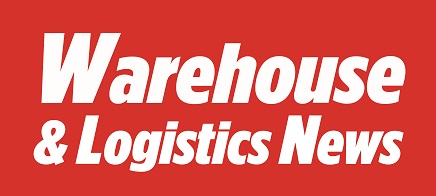Transport management faces escalating challenges with rising costs, tight capacity, and evolving customer demands favouring frequent, efficient deliveries. In response, manual operations are becoming untenable, necessitating the adoption of Transport Management Systems (TMS). A TMS, a real-time technology tool, efficiently tracks and manages inbound and outbound operations across the supply chain, primarily aiming to enhance fleet performance and reduce costs.
 How does a TMS work?
How does a TMS work?
TMS platforms, often offered as Software-as-a-Service (SaaS), resolve operational challenges by providing visibility and modular solutions for optimal route planning, order management, fleet tracking, driver communication, and customer engagement. Continual advancements integrate Machine Learning (ML), Artificial Intelligence (AI), and Internet of Things (IoT) technologies, bolstering functionalities like route planning and predictive analytics while enabling real-time tracking and condition monitoring through mobile devices and sensors.
The benefits of using a TMS
1. Better efficiency
TMS software delivers real-time visibility into operations, streamlining tasks like route optimisation and shipment tracking, resulting in cost savings through mileage reduction and minimised on-road time.
2. Improved customer service
TMS offers accurate, real-time shipment information to customers, reducing enquiries and enabling informed decisions, thereby enhancing customer satisfaction.
3. Safety and Compliance
TMS ensures compliance by monitoring driver hours, vehicle maintenance, and emissions data, thereby improving safety through driver behaviour management and fatigue prevention.
4. Data and analytics
TMS collects and analyses historical delivery and transport data to optimise logistics processes, reduce costs, and enhance customer service through informed decision-making.
Integrating TMS with Other Systems:
System integration enhances overall supply chain visibility, leading to shorter delivery times, improved customer satisfaction, and enhanced business performance. Integration can be achieved through various methods like file transfer, web-based applications, or Application Programming Interfaces (APIs). Integrating TMS with Warehouse Management Systems (WMS), Enterprise Resource Planning (ERP) systems, Global Positioning Systems (GPS), and third-party logistics (3PL) networks streamline supply chain processes, maximising TMS software value.
Best practices from successful integration projects provide valuable insights for optimising integration strategies. Industry benchmarks, standards, and guidelines serve as useful reference points for effective integration. Companies not leveraging TMS integration may lag behind competitors, emphasising the importance of a streamlined, integrated supply chain.
Conclusion:
Selecting, implementing, and integrating TMS requires thorough research, vendor selection, strategy design, testing, and optimisation. Consulting services like those offered by The Supply Chain Consulting Group can facilitate a stress-free TMS integration process, including needs assessment, vendor selection, installation design, testing, monitoring, and optimisation. Ensuring compliance, data security, and organisational readiness are crucial aspects of TMS implementation. Proper training and change management mitigate the impact on organisational structure and culture, ensuring smooth adoption and maximising TMS benefits.
The Supply Chain Consulting Group has extensive experience in selecting, implementing, and integrating a TMS. Our consultants can take you through the process to make it stress-free. We can:
•assess your current situation and your needs
•help you choose the right TMS vendor
•design the installation and integration strategy
•test, monitor and optimise the solution
It is essential to do proper research and compare different TMS vendors before selecting one to suit your needs. We will ensure that your TMS project complies with relevant regulations and standards and that it does not compromise the security or confidentiality of your data. We can also help with training and managing the impact on your organisational structure and culture. Give us a call on +44(0)1926 430 883 or send your enquiry to info@sccgltd.com.





Comments are closed.